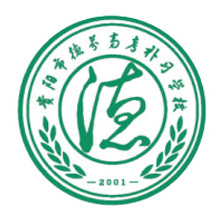高中英语语法基础知识有哪些,英语语法内容,有很多同学都很想知道,英语语法的基本知识是什么,小编整理了相关资料,希望对大家有所帮助。
高中英语语法基础知识有哪些
1.as...as...引导的比较级:
(1)“as +形容词或副词原级+as+被比较对象”结构。例句: He studies as hard as you. 他像你一样学习努力。
(2)在否定句或疑问句中可用 not so…as…. 例句:He can notrun so/as fast as you. 他没你跑得快。
2.The sentence is partially inverted when the + adverbial (or adverbial) clause is at the beginning of the sentence。
例句: Only by diligence and honesty can one succeed inlife. 只有勤奋、正直,一个人在生活中才能成功。
注意:但 only修饰主语时,不倒装。例句: Onlythat girl knew how to work out the problem. 只有那位女生知道怎样解那道题。3.Hope: The verb form of the object clause after hope is when expressing the opposite of the fact or a wish that is unlikely to be realized in the future。
表达现在时的虚拟语气:从属动词用过去时或过去进行时,be的过去式用were。。
I wish I knew the answer to this question. I wish I knew the answer to this question.。
要表达过去的虚拟语气:从句动词使用had +过去分词。
I wish I hadn't wasted so much time. I wish I hadn't wasted so much time.。
⑶表示对将来的主观愿望:谓语动词形式为“would/ should/ could/ might +动词原形”。在这种情况下,主句的主语与从句的主语不能相同,因为主句的主语所期望的从句动作能否实现,取决于从句主语的态度或意愿(非动作名词除外) 。
I wish it would stop raining. 但愿雨能停止。
我想为你许愿。我想为你许愿。我想为你许愿。
例句:I wish you would be quiet. 我希望你安静一些。
4.It forms the object: We use it as a formal object just as we use it as a formal subject. We put the real object clause at the end of the sentence. This is especially true in sentences with complex objects。
例句:He has made it clear that he will not give in. 他表明他不会屈服。
5.This + comparative, this + comparative means the more...... The more......。
例句:The more scared we are, the stronger the difficultywill become.我们越害怕困难,困难就会变得越强大。
6.如果或是否一个问题是宾语。
例句: I want to know if he will join us in thediscussion?
7. 原因状语从句:since引导的
例句: Don’t eat too much sugarsince it is bad for your health.
8.否定前缀反转:scarcely…当……。
例句: Scarcely had he arrived at home when it began torain.
9. If虚拟条件句
10.宾语从句:放在介词后面,作为介词的宾语。
例句:I know nothing about him except that he used towork in Shanghai.
11.状语从句省略(分词作状语):从句的主语与状语从句的主语一致,分词从省略处用作状语。
例句:(Because) being short of money, we can’t afford a TV set. =Because we are short of money, we can’t afford a TV set.
12.复合句:两个句子由“和”、“或”连接,但变成复合句。
13.省略句 /倒装:so/系动词/助动词/情态动词 +sb 表示“前者情况适用于后者”。
例句:You are a student, so am I.
14.谁对世界的发展负责。
例句:Do youremember the girl who taught us English ?你还记得教我们英语的那个女孩吗?
15.宾语从句:whether的用法。
例句:I wonder if/whether it is going to rain tomorrow.
16.不定式做定语。
例句:Theonly way to solve our problems will continue to be rejected.
17.不同的是,它必须引入一个新的事实或情况。如果它保持不变,没有从过去改变,它就不会被使用。
例句:Now that we have all the materials ready, we shouldbegin the new task at once.既然我们把所有材料都准备好了,我们应该立刻开始这项新的工作。
18.如果从句位于句尾,前面有逗号,则可以用连词for代替,但前提是它是从多种情况而不是直接原因推断出来的。
例句:He is absent today, because/for he is ill. 他今天没来,因为他生病了。
19.原因是:as的使用。
例句:The Singapore passengers begin to decrease as otherairlines spread their operating range.
20.我想知道谁会成为我们的下一任总统。原因是:在那里。
例句:Privatization is thought to be beneficial in that itpromotes competition. 私营化的优点在于能促进相互竞争。
21.不定式:不定式用作目的状语。
例句:Weget up very early to catch the first bus.
22.同位语从句:同位语从句在句中作A同位语,对被修饰名词的内容予以解释说明。同位语的特点是:抽象名词在前,表达具体内容的从句在后。常见的名词包括: assumption假定/belief看法/ conclusion结论/ doubt怀疑等。
例句:The suggestion that we should develop the natural resources in theregion has been discussed. 关于我们应该开发本地区资源的建议已经讨论过了。
23.现在完成时:表示从过去持续到现在的动作或状态。更具体地说,这种用法表示过去开始的动作一直持续到现在,并且可能会继续。
例句:An old woman walked out into the middle of the street. The policemanyelled to her, “Don’t you knowwhat it means when I hold up my hand?” The lady said, “Sure I do. I have been a schoolteacher for 28 years now.” 一个老妇人走到了马路中央,这时,一位交警朝着她嚷道:“我都把手举起来了,你难道还不知道什么意思吗?”老太太说:“我当然知道,我都做了28 年的老师了。”
24.时间不是直到。
例句:The students didn’t stop talking until the teacher came in.
25. it做形式主语,句子做逻辑主语:如果主语太长,常用代词 it 作形式主语,将真正的主语从句置于句尾,以保持句式的平衡。
例句:It makes no difference what you read or study ifyou can’t remember it. 如果你记不住,那么你读什么或者学什么都不重要了。
26.现在分词是状语。
(1)现在分词作时间状语。例句:There areseveral things to consider when buying fresh foods. 当购买新鲜食品时,有几个事情要考虑。
(2)现在分词作条件状语。例句:Working hard,you will succeed. 如果努力工作,你将会成功。
(3)现在分词作伴随状语。例句:All night longhe lay awake, thinking of the problem. 他整夜躺在床上睡不着,思考着那个问题。
(4)现在分词作方式状语。例句:Please answerthe question using another way. 请用另一种方法回答问题。
(5)现在分词作原因状语。例句:Not knowingher address, I can’t write to her.由于不知道她的地址,我没法给她写信。
(6)现在分词作结果状语。例句:Possessing a car gives a much greater degree ofmobility, enabling the driver to move around freely. 拥有汽车使机动程度更高,使司机能自由自在地往来各地。
(7)现在分词作让步状语。例句:Although working from morning till night his fatherdidn’t get enough food.虽然他父亲从早到晚拼命干,但是还是挣不够吃的。
27.情态动词表示推测。
(1)对现在 将来情况的推测,用情态动词+动词原形。
Must +动词的形式。
对现在和将来的消极猜测:can t +动词的基本形式。
对现在、将来情况的可能推测:may/might +动词原形
例句:What is he doing?
He must be sleeping./He can’tbe reading./ He may/might be reading but I’m not sure.
(2)对过去情况的推测,用情态动词+已完成。
对过去的积极猜测:一定做过某事;。
对过去情况的负面猜测:不能+已经完成。。
对过去情况的可能推测:may/might +have done sth.
例句:It must / may / might / have rained last night. Theground is wet.
The door is locked. He cannot / may ( might ) not havebeen at home.
28.部分倒置:否定词介词。
(1)hardly/scarcely…when…
例句:Hardly had she gone out when a student came tovisit her.她刚一出门,一个学生就来拜访她。
(2)no sooner…than…
例句:No sooner had the game begun than it began to rainheavily.比赛刚一开始就下起了雨。
29.ing形式用作独立的主格结构:当逻辑主语和主语的主语不一致时使用。
例句:Time permitting, we will go for a picnic tomorrow.(=f time permits, we will go for apicnic tomorrow.) 如果时间允许,我们明天会去野餐。
30.So about structure: so...... So much so that......。
例句:The girl was so excited as to shout herself hoarse.那个女孩兴奋得喊哑了嗓子。
31. even if 引导的让步状语从句:“即使”。
例句: Even if we achieve great success in our work, weshould not be proud.即使我们在工作中取得了巨大成绩,也不应该自满。
32. when 引导的状语从句
(1)当可以和延续性动词连用时,也可以和短暂性动词连用。
例句:Why do you want a new job when you’ve got such a good one already?(get为短暂性动词)你已经找到如此好的工作,为何还想再找新的?
When the predicate verb of the clause can occur before or after the predicate action of the main clause。
例句:When he had finished his homework,he took a short rest.(finished先发生)当他完成作业后,他休息了一会儿。
When I got to the airport, the guests had left. When I got to the airport, the guests had left。
33. that 引导的宾语从句
当名词从句是动词的宾语时,这个词经常被省略,尤其是在非正式语言中。
例句:I suggested (that) they should drive along thecoast. 我建议他们沿着海岸开车。
I hoped (that) I would / should succeed. 我曾希望我会成功。
34. which 引导的主语从句。
例句:Which book they will choose is still unknown. 他们将选择哪本书仍然不被人知。
35.过去完成时和过去将来时。
(1)过去完成时(过去完成时):强调的是过去某一动作或状态发生在另一动作前或过去某个时间常常用到的时态,或指在过去某个时间段已经发生的事情,它就是过去的过去。
过去的动作对现在的影响或结果,用于指定在另一个过去动作之前完成的事件。
②过去某动作一直持续到现在将来可能还要延续下去。句中的动作发生在过去之前(过去的过去),即过去完成时动作发生在过去的过去。例句: He said he had been to Beijing twice. 他说他已经去过北京两次。
(2)过去将来时表示在过去某个时间看来将要发生的动作或存在的状态。即:过去将来时是“立足过去,着眼未来”的一种时态, 常用于宾语从句中。判断这种时态的依据是:要有表示过去的“动作”, 而不是时间。例句:I heard that they were going toreturn to Shanghai soon. 我听说他们不久要回到上海。
36. there be句型:表示的是 “某处有(存在)某人或某物”,其结构为There be (is,are,was, were )+名词+地点状语。例句:There are fifty-two students in our class. 教室里有52个学生。

英语语法基础知识有哪些
1.as...as...引导的比较级:
(1)“as +形容词或副词原级+as+被比较对象”结构。例句:He studies as hard as you. 他像你一样学习努力。
(2)在否定句或疑问句中可用not so…as…. 例句:He can notrun so/as fast as you. 他没你跑得快。
2.The sentence is partially inverted when the + adverbial (or adverbial) clause is at the beginning of the sentence。
例句: Only by diligence and honesty can one succeed inlife. 只有勤奋、正直,一个人在生活中才能成功。
注意:但 only修饰主语时,不倒装。例句:Onlythat girl knew how to work out the problem. 只有那位女生知道怎样解那道题。3.Hope: The verb form of the object clause after hope is when expressing the opposite of the fact or a wish that is unlikely to be realized in the future。
(1)表示对现在情况的虚拟:从句动词用过去式或过去进行式表示,是的过去式用分别。
I wish I knew the answer to this question. I wish I knew the answer to this question.。
(2)表示对过去情况的虚拟:从句动词用had +过去分词。
I wish I hadn't wasted so much time. I wish I hadn't wasted so much time.。
(3)表示对将来的主观愿望:谓语动词形式为“would/ should/ could/ might +动词原形”。在这种情况下,主句的主语与从句的主语不能相同,因为主句的主语所期望的从句动作能否实现,取决于从句主语的态度或意愿(非动作名词除外) 。
I wish it would stop raining. 但愿雨能停止。
我想为你许愿。我想为你许愿。我想为你许愿。
例句:I wish you would be quiet. 我希望你安静一些。
4.It forms the object: We use it as a formal object just as we use it as a formal subject. We put the real object clause at the end of the sentence. This is especially true in sentences with complex objects。
例句:He has made it clear that he will not give in. 他表明他不会屈服。
5.This + comparative, this + comparative means the more...... The more......。
例句:The more scared we are, the stronger the difficultywill become.我们越害怕困难,困难就会变得越强大。
6.如果或是否一个问题是宾语。
例句: I want to know if he will join us in thediscussion?
7. 原因状语从句:since引导的
例句: Don’t eat too much sugarsince it is bad for your health.
8.否定前缀反转:scarcely…当……。
例句: Scarcely had he arrived at home when it began torain.
9.宾语从句:放在介词后面,作为介词的宾语。
例句:I know nothing about him except that he used towork in Shanghai.





